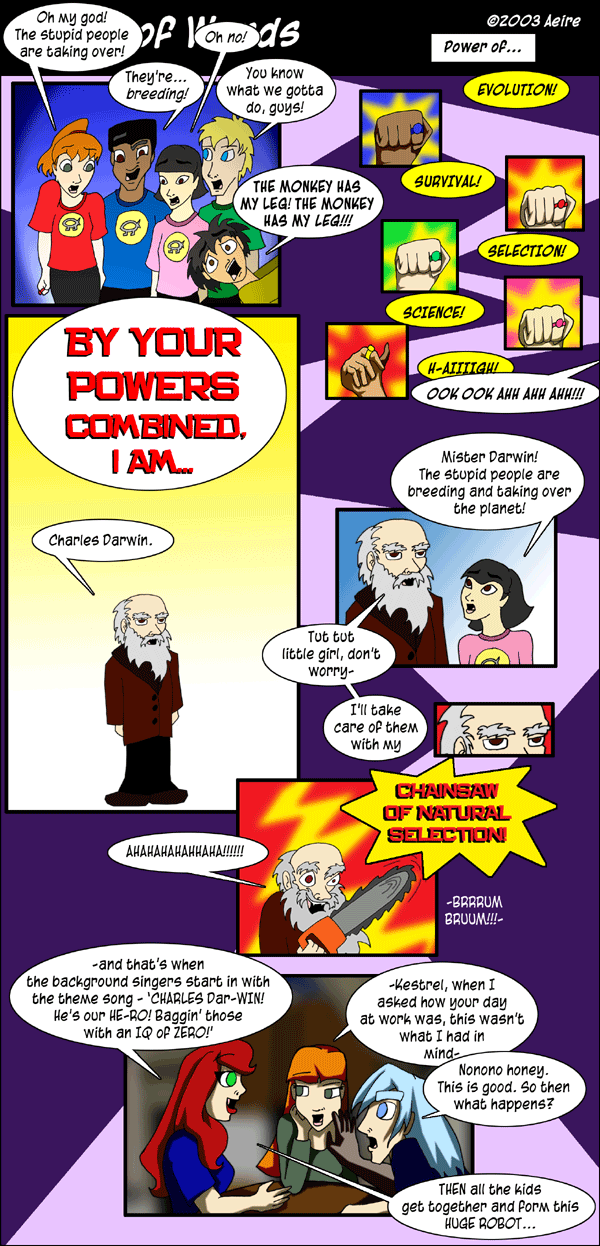Not to pick on you, EW, but that particular meme is a pet peeve of mine. It's really disingenuous. What it really means is: the deaths will continue until you all agree to play like me. Adopt my play style or watch your characters die!
'Improvement' has little to do with it.
I don't think that's what EW's getting at, which is why I gave him XP for that post. I- and many of the guys I've gamed with over the years- have a similar attitude.
If I may...
Its not that I as a DM I want you to change your playstyle. I, as DM won't be changing mine, after all.
What I expect is that your PC be played like he would be if he were "real"...as in, his cinematic self.
That means that I'm usually not fudging dice to save you: if you
routinely charge into impossible odds, eventually your PC is going to die. I'm also not going to go out of my way to punish you for playing your PC that way. And there is nothing wrong with any of that as long as we both understand this.
I mean, look at the source material- examine any swashbuckler or other fantasy hero, you'll see at least one moment when the odds go against them, and they get captured or, in some cases, killed. Or they get someone else killed or captured.
FWIW, I've been on the other side of this- I sacrificed my AD&D fighter, Bear, holding off the City Watch on a bridge, allowing the party to escape. Given that he was only of moderate level, I'd have been ticked if the DM had fudged rolls to let him escape his fate. It would have cheapened the moment. Instead, he went out in a blaze of glory.




